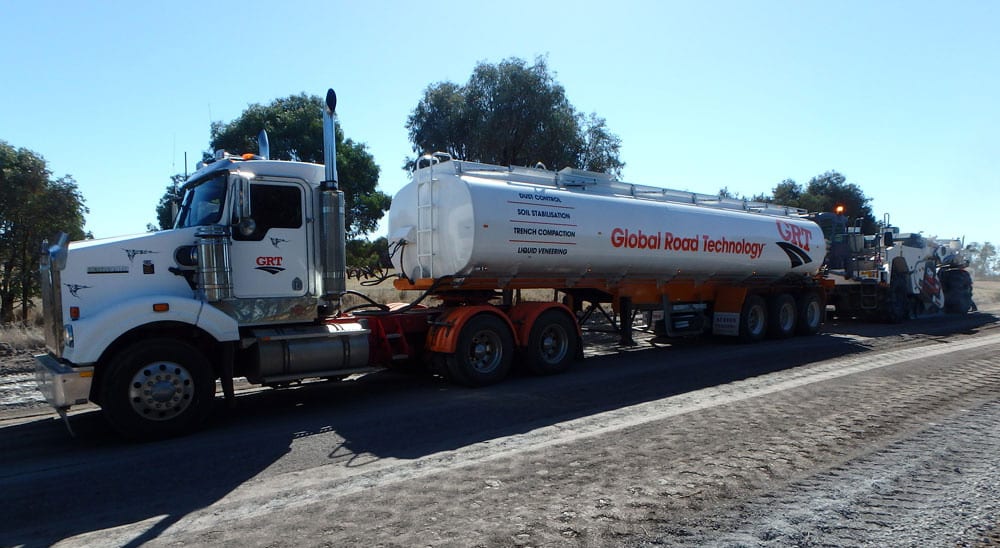
Road stabilization products are in form of compaction aids, binders and water resistance improvers. Chemical stabilization technologies consist mainly of adding an alkaline binder, which is a reagent containing calcium oxide (CaO), for improving the geotechnical properties of soils. The most common road stabilization products are Portland cement and lime.
Lime is generally used to improve fine-grained soils. Slow pozzolanic reaction that occurs between lime and soil silica and soil alumina released in the highly alkali environment is necessary for effective and durable soil stabilization with lime. Reactions between lime and soil are time and temperature dependent and continue over long periods of time, even years.
Portland cement is composed of calcium-silicates and calcium-aluminates which, when mixed with water, form the cementing compounds such as calcium-silicate-hydrate and calcium-aluminate-hydrate, as well as calcium hydroxide. Cement-stabilized materials generally fall into two categories, soil-cement and cement modified soil.
Class C fly ash, which has a content of CaO higher than 20%, can be used as an economic alternative to binders. The CaO content of Class F fly ash, usually lower than 12%, is too small to support pozzolanic reactions. However, due to its composition predominantly made of silica, alumina and iron oxide, Class F fly ash is a useful pozzolanic additive and can be used along with Portland cement.
When it comes to conventional methods, compromise has to be made; either expensive road stabilization products such as cement or lime will be used or cheaper waste material such as fly ash with poorer outcome. To overcome this approach, Global Road Technology invented highly effective road stabilization products. Used on its own or in conjunction with traditional soil stabilization agents GRT7000 achieves extremely high UCS values with relatively low dosage rates. For example, testing with as little as 0.7% by mass has seen results over +6MPa achieved.
GRT7000 works by physically and chemically bonding soil or pavement particles leading to improved compressive strengths, high tensile resilience, and water impermeability. Due to its advanced characteristics it can be used for stabilization of public roads and even hardstand areas such as haul roads.
Are environmental regulations, health and safety concerns or potential profit loss a concern right now?
Unlike lime and cement, GRT road stabilization products have low carbon footprint. Compared to fly ash, there is no risk of leaching of harmful substances, since GRT road stabilization products don’t contain harmful compounds and they are water resistant. Their environmental friendliness is confirmed by Environmental Resource Management (ERM). What decreases carbon footprint of GRT technology even more is durability of treated terrains. Durability is caused by high resistance to precipitation water, temperature variations, UV rays and soil microorganisms.
For more information regarding Global Road Technology or road stabilization products please contact GRT.
Are environmental regulations, health and safety concerns or potential profit loss a concern right now?
Contact Us Now